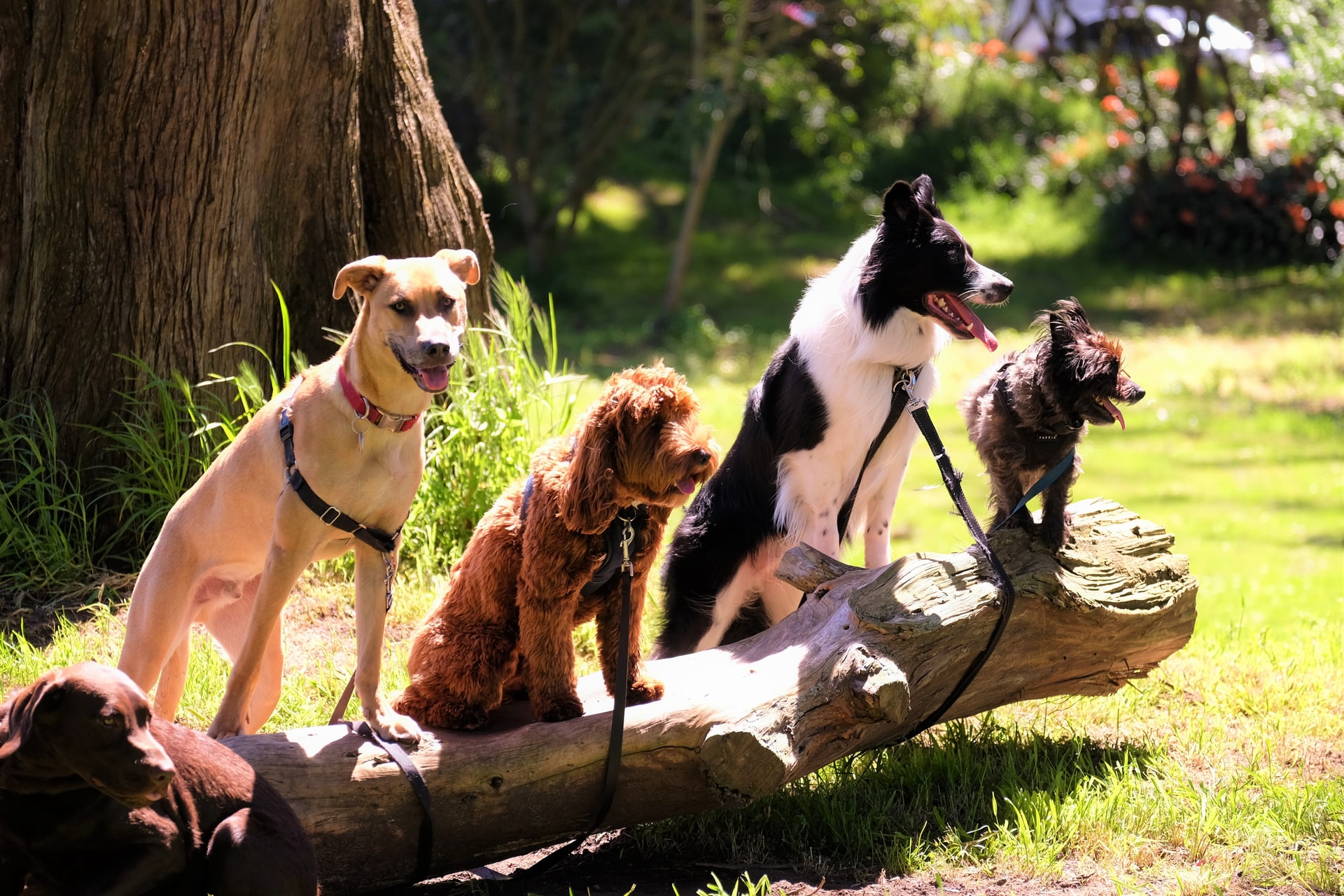Dog Food for Large Breeds: How to Choose the Right One?
Today, on Redhead Mom, I’m sharing a partnered guest post about dog food for large breeds.
Choosing dog food can be challenging, especially when it’s for a large breed canine. Find out how you can choose the appropriate food for your furry friend.

When it comes to dog food, there is no one-size-fits-all kind. Every dog, irrespective of its size, has different dietary requirements. Many dog owners make the mistake of assuming that the larger the dog, the more food it needs to grow. This concept is inaccurate and misleading; it deprives your dog of receiving healthy nutrients, which may later lead to bone and joint disease.
Large breed pups such as those german shepherd puppies for sale have a faster growth rate than their small breed counterparts. Because of this, they tend to be more susceptible to certain health risks due to deficiency in their calorie and mineral intake. Let’s take a closer look at these two factors:
Calories or Energy
When it comes to feeding your large breed puppy, aim for a steady growth instead of a rapid one. Calories or energy involves nutrients, fats, proteins, and carbohydrates, and a balance of these provides your dog with healthy nutrition and also promotes slow, steady growth. This also ensures that your dog’s muscles and bones are perfectly formed.
Large breed dogs tend to grow up faster and a lot! Formulas for large breed pups high in fats are calorically dense and may lead to the pup growing faster than the formation of its bones. This can later lead to orthopedic issues when they are unable to support their own weight. Their growth rate and meal plans have to be regularly monitored so that skeletal malformations can be avoided.
Minerals
Calcium and phosphorus are the two minerals that are essential for the formation of healthy bones. These two minerals are generally found in the skeletons, where they provide structural support and strength. A perfect ratio of these minerals will provide the pup with healthy bones and joints. Generally, a ratio between 1:1 and 1:3 is recommended for a large breed pup to promote healthy bone and joint formation.
Excess amounts of either of these minerals can be harmful. Pups of any size are unable to control and regulate the amount of calcium absorbed from the intestinal tracts. They may absorb and retain an excessive amount of calcium, which can cause deficiencies in other essential nutrients like phosphorus. Therefore, if your giant breed pup is following a balanced diet, calcium supplements are not recommended. You can also seek advice from your veterinarian for a diet that meets your pup’s dietary requirements, which also include vitamins A and D, copper, zinc, and manganese that contribute to healthy bone formation.
Selecting Large Breed Dog Food
Choosing the right kind of dog formula for your large, furry friend can become overwhelming, but it doesn’t need to be. If you’re a new pet owner of a large breed pup, you should know that the two most popular household names in pet food are Iams and Purina. You can compare Iams vs. Purina dog food and review the pros and cons of their products and then select the one that seems perfect for your best friend. Both of their big dog formulas provide a nutritious and healthy meal that boosts metabolism and promotes healthy bone and joint formations.
Purchasing dog food from a reliable manufacturer takes away the stress of wondering whether or not your dog is receiving a proper diet. However, as your pup begins to age, you’ll need to purchase different pet food that would meet their nutritional needs. You can consult with your veterinarian and select a dog food that maintains a good quality control standard.
Large Breed Puppy Food
When taking care of your pets, especially if it is a large or giant breed dog, you need to aim for steady growth instead of a rapid one. Large breed puppies tend to grow quicker than their small breed counterparts. A large breed pup weighing just over one pound can gain to a minimum of 150 pounds during the first year of its life. This accelerated growth is the reason why it is important to monitor their meals at a very young age. Their metabolism is extremely sensitive and anything in excess, deficiency, or imbalance in their nutrition can wreak havoc on your pup’s health.
It may be tempting to feed them a little more than necessary or to provide calcium supplements, thinking that a large breed pup may need more calcium for healthy bone growth: this, in fact, may become harmful for your pup and can lead to developmental orthopedic diseases (DOD).
Large Breed Dog Food for Adults
Once your pup reaches adulthood, it’s time to find another dog food appropriate for its age and health. This would be a good time to consult with your veterinarian about the best large breed dog food. Your vet will be able to recommend the best diet according to the size, breed, and health status of your dog. Health concerns, such as orthopedic disease, obesity, and bloating are influenced by your dog’s nutrition, and your vet will take these into account when suggesting a pet food choice. They can provide you with a lot of insights and options that can help you make an informed decision when purchasing dog food for your large friend. This comparison between nom nom vs. the farmer’s dog might also help you choose between the two.

Large Breed Food for Senior Dogs
Senior large breed dogs often develop health problems as they begin to age and require a regular check-up with the vet. They may be given a specially prescribed diet formulated to address your dog’s nutritional needs.
There is no “senior stage” in dog food for large breeders. According to your dog’s health conditions, all life-stage formulas or adult and senior formulas are great options for senior large breed dogs. However, your vet may give you a different diet and meal plan to follow based on the health conditions of your dog, which includes reducing or increasing portions of food or the number of mealtimes per day.
How Often Should I Feed My Dog?
It is recommended that dogs should be fed meals twice a day at least, about 12 hours apart. Feeding them three times a day (breakfast, lunch, and dinner) is also an equally good option, especially for large breed puppies, but make sure you do not add more food to the dietary plan. In addition, ensure that your large breed companion doesn’t go without food for more than 12 hours as that’ll cause them to become nauseous, and their stomach may become hyper-acidic or cause them to bloat. When feeding large and giant breed dogs, below are a few conditions you need to watch out for:
Bone and Joint Disease
Large and giant breed dogs are more susceptible to orthopedic diseases, such as arthritis and hip dysplasia. There are many causes linked to this disease, such as genetic factors, exercise, and nutrition. You may not be able to control genetic factors, apart from the fact that you can choose a dog from a healthy breeding family. You can, however, control the intake of nutrients and calories that will help in maintaining a steady growth rate and exercise.
Obesity
Large breed dogs are extremely prone to obesity. All that extra weight increases the risk of your dog having an orthopedic issue as it strains the joints, muscles, and eventually their bones. It may also cause serious conditions, such as Type 2 diabetes, kidney diseases, and high blood pressure.
Bloating
This is the most common health issue that occurs in almost every dog and should be avoided before it turns into something serious. Bloating occurs when gasses start accumulating in the stomach with no means of escaping. This can become fatal in a very short amount of time, which is why it is important to prevent it from happening.
Below are a few things you can do to reduce the risk of the above-mentioned risks for your dog:
- Though it is recommended to feed twice or thrice a day, you can break it down to feeding multiple times instead. This will prevent your dog from eating rapidly due to hunger.
- Avoid high-fat content foods
- Avoid feeding people food
- Feed large kibble foods
- Avoid exercise for 2 hours after feeding
Large breed dog formulas can be given to avoid these conditions from occurring. However, it is still a good idea to ask for your vet’s recommendation.
In a Nutshell
As a pet owner, owning a large or giant breed dog comes with its own set of responsibilities. Searching for the right type of natural pet foods for your furry friend can easily become daunting, especially when you see many options on the shelves. A properly formulated diet and meal plan can help your large companion to lead a healthy life and avoid diseases. But, in the end, we all want what’s best for our dog, so he can live a long, healthy, and active life. And all that starts with the right type of nutrition.












Leave a Reply